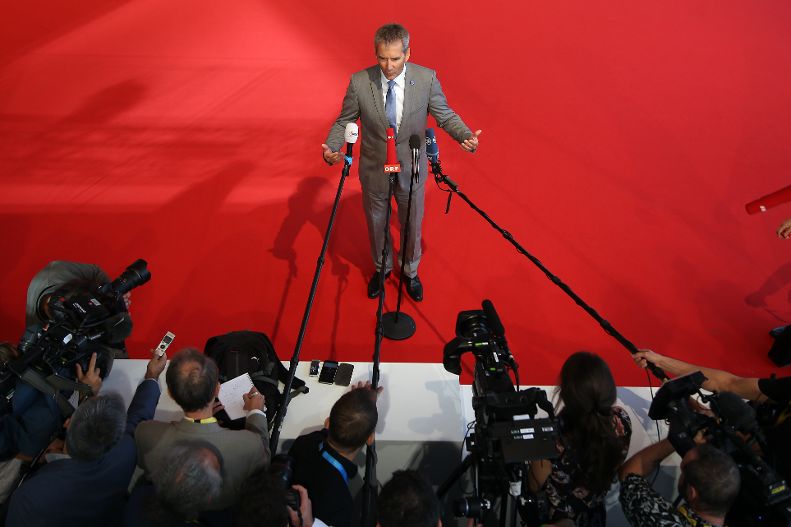
Federal Minister Löger at the informal Ecofin meeting in Vienna: “Implementation of an EU digital services tax possible by the end of this year"
Commitment to a fair taxation of the digital economy and plan to deepen the Economic and Monetary Union
“Based on the European Commission proposal we want to implement a digital services tax as soon as possible”,
said Austrian Minister of Finance Hartwig Löger at the end of the second day of the informal meeting of economic and financial affairs ministers (Ecofin) in Vienna. He believes that it is realistic for an agreement to be reached by the end of this year.
The digital services tax means that digital activities in the member states will be taxed and it will apply to revenues from those activities in which users make a substantial contribution to the value added. According to the proposal of the European Commission, only those companies with minimum global revenues of 750 million euros or revenue within the EU of at least 50 million euros will be affected by the tax.
“There was broad support in the Council especially for preparing further measures against no-tax and low-tax systems. We want to make sure that the profit of big companies is taxed in a fair way and that there is an increase in the resulting revenue”, said Hartwig Löger, who was pleased about the progress of the talks.
“From the discussion, it also became clear that we, the EU27, need to develop in the Organisation for Economic Co-operation and Development (OECD) an EU position with regard to this issue that is as united as possible ”, said Löger.
According to the Austrian Minister of Finance, this also underlines the position held by France and Germany, which have suggested a “sunset clause”. This means that the digital services tax would be a temporary levy valid until an agreement has been reached on an international level.
With new or improved budgetary instruments structural weaknesses in the member states shall be eliminated in a more targeted manner.
“InvestEU is a Commission proposal based on the European Fund for Strategic Investments (EFSI)”, said the Austrian Minister of Finance. “This proposal aims at mobilising around 650 billion euros in additional public and private investment in the areas of infrastructure, research, innovation, digitalisation, as well as small and medium‑sized enterprises (SMEs) and the strengthening of social cohesion. The merging of the 14 existing financial instruments is expected to result in a more simple and accessible funding landscape.”
In the context of the next financial framework from 2021 to 2027, the Commission has presented two proposals for promoting structural reforms and macroeconomic stability.
“A European Investment Stabilisation Function (EISF) with a maximum lending volume of 30 billion euros and a Reform Support Programme (RSP) of 25 billion euros in total by 2027 shall help to absorb asymmetric shocks and carry out structural reforms in the member states”, said Löger.
”As this week draws to an end I would like to sincerely thank all the participants. In the past few days Vienna has been Europe’s financial capital and I believe that we were able to present Austria as a host in the best possible way”, said Löger in conclusion.
More information about the event can be found on the event page.
Federal Ministry of Finance
Press Office
+43 1 514 33 501 030
+43 1 514 33 501 031
bmf-presse@bmf.gv.at
http://www.bmf.gv.at